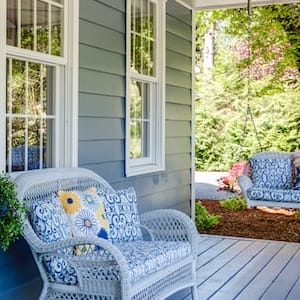house poor: Idiom Meaning and Origin
What does ‘house poor’ mean?
Idiom: house poor
Meaning: Someone who spends a large portion of their income on housing expenses, leaving little money for other expenses or savings.

Idiom Explorer
An idiom that means someone is very poor and has no money.
An idiom that means an extremely small or tight space, often used to convey a sense of constriction or being cramped.
The idiom "house of ill fame" refers to a place, often a brothel, that is known for immoral activities and a bad reputation.
The idiom "house nigger" is an offensive term used to describe a black person who aligns themselves with white people, often gaining certain privileges or benefits as a result. Its origin dates back to the era of slavery when some enslaved individuals worked in the houses of slave owners.
The idiom "hand-to-mouth" means living in a state of poverty or scarcity, barely being able to meet one's basic needs for survival.
The idiom "hand to mouth" means living in poverty or a state of financial insecurity, where one is barely able to meet their basic needs.
The idiom "go for broke" means to take a great risk or make a bold, all-out effort in pursuit of a goal, regardless of the potential consequences or failure.
The idiom "feathered oof-bird" refers to a person who is always broke or in debt, often due to frivolous spending or poor financial management.
"Eat someone out of house and home" means to consume all of someone's food and resources, usually in large quantities. It is used to describe someone who eats voraciously and excessively, causing a significant strain on the household's supplies and finances.
Hidden Financial Burdens
The idiom "two pennies to rub together" is closely related to the concept of being house poor. When someone is described as not having two pennies to rub together, it means they have very little money or financial resources. This situation often arises when a significant portion of one's income is allocated towards housing expenses, leaving little to no room for discretionary spending or saving.
When individuals or families find themselves house poor, they may struggle to meet their basic needs and may not have enough money for essential items such as food, healthcare, or transportation. This financial strain can lead to a hand-to-mouth existence, where every dollar earned goes towards meeting immediate expenses, leaving no room for saving or investing for the future.
Being house poor can create a cycle of financial instability, making it difficult for individuals to break free from the constraints of their current living situation. It can also impact their overall well-being and quality of life, as they may constantly feel stressed and worried about their financial situation.
To avoid finding oneself without two pennies to rub together and falling into the trap of being house poor, it is crucial to carefully consider housing affordability before committing to a mortgage or rent. This means assessing one's income, expenses, and financial goals to ensure that housing costs are manageable and sustainable in the long term.
It is also important to develop a comprehensive budget that takes into account all housing-related expenses, including mortgage or rent payments, property taxes, homeowners insurance, maintenance costs, and utilities. By having a clear understanding of these expenses, individuals can better allocate their income and identify areas where they can potentially save or cut back.
Exploring alternative housing options or locations is another strategy to prevent or address being house poor. This could include downsizing to a smaller home or considering more affordable neighborhoods or suburbs. Additionally, renting may be a more viable option for some individuals or families, as it can provide more flexibility and potentially lower housing costs.
Seeking professional financial advice or assistance is also recommended for those who are concerned about their housing affordability and overall financial well-being. Financial planners, mortgage brokers, or housing counselors can provide guidance and support in navigating the complexities of housing costs and budgeting.
Ultimately, understanding the concept of being house poor and the related idioms of "two pennies to rub together" and "hand to mouth" can help individuals make informed decisions about their housing choices and financial priorities. By finding a balance between housing costs and other financial goals, individuals can avoid the pitfalls of being house poor and strive for financial stability and well-being.
Example usage
Examples of how the idiom house poor can be used in a sentence:
- Despite having a high-paying job, Sarah is still house poor because she spends almost all of her income on her mortgage.
- After purchasing their dream home, the couple realized they were becoming house poor and struggled to afford basic necessities.
- The Smiths decided against buying a larger house since they didn't want to become house poor and be unable to enjoy other aspects of life.
More "Finance" idioms



